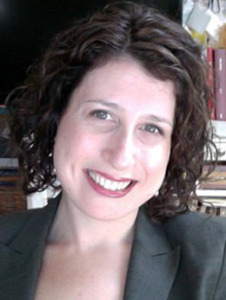
Oncologists Experience Difficulty Discussing Death
Oncologists Experience Difficulty Discussing Death
May 23, 2013
Medical Research, Press Releases
BEER-SHEVA, Israel, May 23, 2013 – A group of oncologists have revealed in a new study by Ben-Gurion University of the Negev (BGU) researchers that communicating about death and dying with their patients is one of the most difficult and stressful parts of their work.
In the United States, 577,190 deaths from cancer occurred in 2012, according to the American Cancer Society.
The online paper published ahead of print in The Journal of Oncology Practice reported that despite this important element of their work, oncologists receive little training in this area, and many do not communicate well with patients. The research included interviews with doctors about what they found difficult and what they believed they did well.
“To our knowledge, this is the first qualitative exploration of communication about the end of life from an oncologist’s perspective,” explains Dr. Leeat Granek, a professor at BGU’s Faculty of Health Sciences.
“What makes our study unique is the opportunity to get into the oncologists’ heads, to understand what they perceive to be the goals of effective communication about the end of life, as well as what makes it difficult for them to achieve these goals.
“Through the analysis, it became apparent that there is tension between what are perceived to be good communication strategies and the significant number of barriers to implementing them.”
The researchers found that the strategies for effective communication about end of life included: being open and honest with patients, and having ongoing early conversations about treatment goals, while balancing hope and reality about end of life. Barriers to implementing these strategies fell broadly into three domains: physician factors, patient factors and institutional factors.
• Physician factors are difficulties with treatment and palliative care; personal discomfort with death and dying; diffusion of responsibility among colleagues; using the “death-defying mode”, i.e. not accepting the inevitability of death and treatment failure; lack of experience; and lack of mentorship.
• Patient factors include patients and/or families being reluctant to talk about end of life; language barriers; and the younger age of patient.
• Institutional factors are stigmas surrounding palliative care; lack of protocol about end-of-life issues; and lack of training for oncologists on how to talk with patients about end-of-life issues.
The study concluded that further research and intervention are necessary to aid oncologists in achieving effective communication about end-of-life issues. Dr. Granek and co-researchers interviewed a group of Canadian medical oncologists from three hospitals in Canada. Funding was provided by the Juravinski Cancer Centre Foundation, Hamilton, Ontario.
ABOUT AMERICANS FOR BEN-GURION UNIVERSITY
By supporting a world-class academic institution that not only nurtures the Negev, but also shares its expertise locally and globally, Americans for Ben-Gurion University engages a community of Americans who are committed to improving the world. David Ben-Gurion envisioned that Israel’s future would be forged in the Negev. The cutting-edge research carried out at Ben-Gurion University drives that vision by sustaining a desert Silicon Valley, with the “Stanford of the Negev” at its center. The Americans for Ben-Gurion University movement supports a 21st century unifying vision for Israel by rallying around BGU’s remarkable work and role as an apolitical beacon of light in the Negev desert.
About Ben-Gurion University of the Negev
Ben-Gurion University of the Negev embraces the endless potential we have as individuals and as a commonality to adapt and to thrive in changing environments. Inspired by our location in the desert, we aim to discover, to create, and to develop solutions to dynamic challenges, to pose questions that have yet to be asked, and to push beyond the boundaries of the commonly accepted and possible.
We are proud to be a central force for inclusion, diversity and innovation in Israel, and we strive to extend the Negev’s potential and our entrepreneurial spirit throughout the world. For example, the multi-disciplinary School for Sustainability and Climate Change at BGU leverages over 50 years of expertise on living and thriving in the desert into scalable solutions for people everywhere.
BGU at a glance:
20,000 students | 800 senior faculty | 3 campuses | 6 faculties: humanities & social sciences, health sciences, engineering sciences, natural sciences, business & management, and desert research.
For all press inquiries, please contact:
James Fattal, J Cubed Communications
516.289.1496




